In Focus This Week
The Kids Are Alright
Henderson, Nevada’s “Kids Vote” program engages thousands
By M. Mindy Moretti
electionline.org
 Building on the purpose statement “Connecting Our Community with Local Government” – the Henderson, Nevada city clerk’s office created several initiatives around community outreach, particularly voter outreach, in its most recent strategic plan.
Building on the purpose statement “Connecting Our Community with Local Government” – the Henderson, Nevada city clerk’s office created several initiatives around community outreach, particularly voter outreach, in its most recent strategic plan.
One of these outreach initiatives was to involve children in voting in meaningful ways, through education and engagement activities. Henderson Kids Vote 2024 was the first of these initiatives.
In addition to putting resources on the city’s elections website geared toward children, staff brainstormed ways to involve children in a manner that closely mimicked the voting process that they see their parents participating in, but on a level that they can understand and be excited about.
It was decided that staff would build out a voting booth and voting machine but with ice cream flavors as the candidates. The candidates would start with a larger pool that would be narrowed through the primary elections, leading up to the final winner at the general election.
“Our Kids Vote hours mirrored our regular early voting and election day hours during all three elections,” explained Chelsea Palacios, Lead City Clerk Services Specialist. “Logistically we decided to keep the City Hall voting site as the only Kids Vote location.”
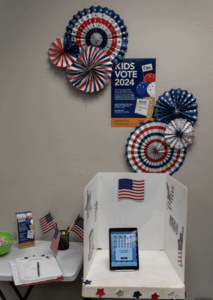 They used an old iPad that was previously assigned to the Passports division as the voting machine and trying to create a realistic experience for the children, the city reached out to Clark County which gave them an old voting booth to use. The city maintenance team helped by cutting the legs down for a child height voting booth. They also created a paper roster to use for voter check-in, being mindful to only collect their first name, their signature and their age.
They used an old iPad that was previously assigned to the Passports division as the voting machine and trying to create a realistic experience for the children, the city reached out to Clark County which gave them an old voting booth to use. The city maintenance team helped by cutting the legs down for a child height voting booth. They also created a paper roster to use for voter check-in, being mindful to only collect their first name, their signature and their age.
According to Julie Chapman, CERA, Election Administrator, there were a few reasons for using an iPad instead of actual voting equipment. First, elections in Henderson are managed by Clark County so the city doesn’t have its own voting machines. Second, the city also wanted to avoid any confusion or controversy. Using actual voting equipment for a lighthearted, kid-focused event, especially something like an ice cream-themed election, could have led to unnecessary scrutiny or even fueled conspiracy theories, Chapman said. She said it was important to clearly separate the Kids Vote from the official election process.
“Lastly, we wanted to make the experience as simple and accessible as possible for children. iPads are intuitive and familiar to most kids, making them an ideal platform,” Chapman said. “They also allowed us to scale the program easily without burdening election staff. Using Microsoft Forms to build the ballot and tally results made the whole process quick and efficient. Plus, we were able to size the voting booths just right for little voters!”
The city partnered with the Purple Penguin Snowcone Shack to give away free ice cream to children who participated in the program.
“They offered to give us coupons good for a free scoop of ice cream for each kid who voted in the PPP. I asked how many coupons they would be willing to donate and the answer was ‘No limit!’” Palacios explained. “In fact the owner was so pleased with the response during the PPP that he wanted to partner with us for the remaining two elections. Even though he ended up giving away a lot of ice cream, he still saw an increase in sales exclaiming ‘Best Tuesdays ever!’.”
 And we would be remiss if we didn’t note that in addition to free ice cream, all youth participants got their very own, custom Henderson Kids Vote 2024 “I Voted” sticker.
And we would be remiss if we didn’t note that in addition to free ice cream, all youth participants got their very own, custom Henderson Kids Vote 2024 “I Voted” sticker.
While they didn’t have a set budget in mind, an effort was made to keep expenses low. In the end, the city spent approximately $2,500 total over the three elections.
“Thanks to our city’s Communications and Marketing Department all graphics, including designing a fabulous custom look, and printing the collateral was done in-house for free or at cost,” Palacios said. “We spent a small amount of money on an iPad stand, some decorations for the voting booth and a 8’x8′ banner.”
Though the target audience was primarily elementary school aged children the voting booth was open to anyone 18 and under, which created a fun loophole for some.
“[The loophole] allowed 18 year olds to vote in both the “adult” election and the “ice cream” election” Palacios explained.
The Henderson Kids Vote voting booth debuted during the Presidential Preference Primary with 117 kids casting ballots. The booth returned for the regular primary with 359 kids voting. And finally, the General Election Henderson Kids Vote voting booth saw 1,474 children make their final selections – cookies and cream was the ultimate winner, by the way.
Plans are already in the works for 2026. While there had been initial talks about possibly doing something other than ice cream – pizza toppings were mentioned and folks in the elections world know how passionate people are about those! – ice cream is back on the menu.
“Ice cream was a hit with kids and parents alike, and we had a fantastic community partner in the Purple Penguin Snowcone Shack. Given how well the program was received, we absolutely plan to bring it back for 2026, with ice cream on the ballot once again!” Chapman said. “We’re still finalizing the candidate list, but we’ve heard whispers that the reigning champion, Cookies and Cream, may not be returning to defend the title. That said, there are a few exciting new challengers (flavors) gearing up for a fun and friendly campaign. Stay tuned!”
Chapman also had some advice for other cities and counties considering something similar. Keep it simple and fun! She said parents appreciated that the process was quick, easy, and located conveniently next to our ice cream partner, which made for a fun outing. Also, a photo-friendly backdrop was a small investment that made a big impact. Parents loved snapping pictures of their kids “voting,” and those photos became organic advertising on social media. And lastly,
“[S]taffing matters! If your Kids Vote location is near a busy vote center, try to assign a dedicated staff member to oversee the Kids Vote station, especially during peak non-school hours,” Chapman advised. “Having someone focused solely on that experience helps ensure everything runs smoothly and that families feel welcome and engaged.”
(The Henderson Nevada City Clerk’s Kids Vote Henderson 2024 received the Beacon Award from the Election Center.)
electionline Daily News Email
 What’s the best part of waking up? electionline Daily News in your inbox of course so be sure to sign up for your daily dose.
What’s the best part of waking up? electionline Daily News in your inbox of course so be sure to sign up for your daily dose.
Each morning you’ll receive the top headlines of the day, plus a listing of states featured in that day’s news round up.
To sign up, simply visit our site and provide us with your email and you’ll begin receiving the news in your inbox each morning.
We Google so you don’t have to!
Election News This Week
 Federal Update: While there have been reports from Colorado, Minnesota and Pennsylvania, this week, The Washington Post has an exclusive look at U.S. Department of Justice requests for voter registration rolls and election data nationwide. According to The Post, the Trump administration and its allies have launched a multipronged effort to gather data on voters and inspect voting equipment, sparking concern among local and state election officials about federal interference ahead of the 2026 midterms. The Justice Department has taken the unusual step of asking at least nine states for copies of their voter rolls, and at least two have turned them over, according to state officials. In addition, two DOJ lawyers have asked states to share information about voters to implement a Trump executive order that would shift some power over elections from the states to Washington. Courts have temporarily blocked key provisions of that order, including changing mail ballot deadlines and requiring voters to provide proof of citizenship. The DOJ attorneys have asked to talk about a different provision, which has not been halted by the courts, focused on sharing information. Following the Post’s reporting, outlets in Nevada, New Hampshire and Rhode Island have written about the impacts on their states. As the Department of Homeland Security seeks to transform a federal database for immigrant benefits into a database to search for noncitizen voters, a trio of Democratic senators are pressing the department for more information. Sens. Gary Peters, D-Michigan, Alex Padilla, D-Califronia, and Jeff Merkley, D-Oregon, wrote to Homeland Security Secretary Kristi Noem on July 15 posing a series of questions around the department’s overhaul of the Systemic Alien Verification for Entitlements (SAVE) database. “States and nonpartisan voter advocacy organizations have expressed concerns with using the SAVE program as a standalone tool to determine voter eligibility without adequate safeguards,” the senators wrote. “In particular, there are concerns that data quality issues may cause state and local officials who rely on the program to receive false positives or incomplete results.”
Federal Update: While there have been reports from Colorado, Minnesota and Pennsylvania, this week, The Washington Post has an exclusive look at U.S. Department of Justice requests for voter registration rolls and election data nationwide. According to The Post, the Trump administration and its allies have launched a multipronged effort to gather data on voters and inspect voting equipment, sparking concern among local and state election officials about federal interference ahead of the 2026 midterms. The Justice Department has taken the unusual step of asking at least nine states for copies of their voter rolls, and at least two have turned them over, according to state officials. In addition, two DOJ lawyers have asked states to share information about voters to implement a Trump executive order that would shift some power over elections from the states to Washington. Courts have temporarily blocked key provisions of that order, including changing mail ballot deadlines and requiring voters to provide proof of citizenship. The DOJ attorneys have asked to talk about a different provision, which has not been halted by the courts, focused on sharing information. Following the Post’s reporting, outlets in Nevada, New Hampshire and Rhode Island have written about the impacts on their states. As the Department of Homeland Security seeks to transform a federal database for immigrant benefits into a database to search for noncitizen voters, a trio of Democratic senators are pressing the department for more information. Sens. Gary Peters, D-Michigan, Alex Padilla, D-Califronia, and Jeff Merkley, D-Oregon, wrote to Homeland Security Secretary Kristi Noem on July 15 posing a series of questions around the department’s overhaul of the Systemic Alien Verification for Entitlements (SAVE) database. “States and nonpartisan voter advocacy organizations have expressed concerns with using the SAVE program as a standalone tool to determine voter eligibility without adequate safeguards,” the senators wrote. “In particular, there are concerns that data quality issues may cause state and local officials who rely on the program to receive false positives or incomplete results.”
 Threat to Elections: William Wayne Bryant, 71, who once ran for sheriff in Archuleta County has been charged with arson for allegedly throwing a Molotov cocktail into the Archuleta County Clerk’s office. According to Colorado Public Radio, Bryant appears to have targeted the room where the county’s Dominion voting machines are stored. There are indications Bryant subscribes to conspiracy theories that Dominion equipment has been used to steal elections. The incident occurred in the early hours of June 12. According to the arrest affidavit, security video recorded a man throwing an incendiary device through a side window before running away. The bomb caused a fire that engulfed parts of the office. Soot, fire and water damage have forced the clerk’s office to remain closed since the incident. Pagosa Springs police arrested Bryant on June 25 and charged him with 1st degree arson, a class 4 felony, and possession of an explosive or incendiary device, a class 5 felony. He is scheduled to be formally charged at a hearing on July 23, but that date could be extended, and is currently out on bail. According to the arrest affidavit, Bryant spoke publicly about wanting the county to get rid of its Dominion Voting machines. Archuleta County’s clerk and recorder, Republican Kristy Archuleta, said she’s familiar with Bryant because he ran for sheriff in 2022 as an unaffiliated candidate, getting 16 percent of the vote in a three-way race. The clerk believes Bryant has continued to stew over his loss. “It’s kind of scary that it’s taken that long for him to do something like this,” Archuleta told CPR News. “We all have everyday frustrations. But how you react to them says a whole lot more about a person.” Archuleta said Dominion plans to send replacement machines once her staff moves into a more permanent location and reopens to the public; the equipment is covered by insurance. “We just keep plugging along and doing our job exactly the way we’re supposed to. And it’s unfortunate that people think that we’re not doing the job according to law, but I mean, we all do. So it’s just frustrating that people think that,” said Archuleta. She added that she’s thankful no one was hurt in the attack. Also in Colorado, The Denver Post has a story about a consultant claiming to work for the White House called several Republican county clerks seeking “third-party” access to secure voting equipment. At least 10 Republican clerks were contacted by consultant Jeff Small, officials said. Small, who has Colorado political connections, told the clerks that he was working on the project for the White House and the U.S. departments of Justice and Homeland Security, and he said he wanted the clerks to let an outside party access voting equipment to identify “gaps.” All ten clerks denied the request.
Threat to Elections: William Wayne Bryant, 71, who once ran for sheriff in Archuleta County has been charged with arson for allegedly throwing a Molotov cocktail into the Archuleta County Clerk’s office. According to Colorado Public Radio, Bryant appears to have targeted the room where the county’s Dominion voting machines are stored. There are indications Bryant subscribes to conspiracy theories that Dominion equipment has been used to steal elections. The incident occurred in the early hours of June 12. According to the arrest affidavit, security video recorded a man throwing an incendiary device through a side window before running away. The bomb caused a fire that engulfed parts of the office. Soot, fire and water damage have forced the clerk’s office to remain closed since the incident. Pagosa Springs police arrested Bryant on June 25 and charged him with 1st degree arson, a class 4 felony, and possession of an explosive or incendiary device, a class 5 felony. He is scheduled to be formally charged at a hearing on July 23, but that date could be extended, and is currently out on bail. According to the arrest affidavit, Bryant spoke publicly about wanting the county to get rid of its Dominion Voting machines. Archuleta County’s clerk and recorder, Republican Kristy Archuleta, said she’s familiar with Bryant because he ran for sheriff in 2022 as an unaffiliated candidate, getting 16 percent of the vote in a three-way race. The clerk believes Bryant has continued to stew over his loss. “It’s kind of scary that it’s taken that long for him to do something like this,” Archuleta told CPR News. “We all have everyday frustrations. But how you react to them says a whole lot more about a person.” Archuleta said Dominion plans to send replacement machines once her staff moves into a more permanent location and reopens to the public; the equipment is covered by insurance. “We just keep plugging along and doing our job exactly the way we’re supposed to. And it’s unfortunate that people think that we’re not doing the job according to law, but I mean, we all do. So it’s just frustrating that people think that,” said Archuleta. She added that she’s thankful no one was hurt in the attack. Also in Colorado, The Denver Post has a story about a consultant claiming to work for the White House called several Republican county clerks seeking “third-party” access to secure voting equipment. At least 10 Republican clerks were contacted by consultant Jeff Small, officials said. Small, who has Colorado political connections, told the clerks that he was working on the project for the White House and the U.S. departments of Justice and Homeland Security, and he said he wanted the clerks to let an outside party access voting equipment to identify “gaps.” All ten clerks denied the request.
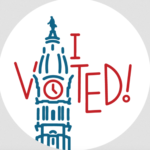 Pennsylvania Provisionals: This week, Pennsylvania election officials announced a redesigned provisional-ballot envelope that they hope will lead to fewer ballots being rejected for technical errors. “Improvements to envelope design might seem like a small thing, but it has a huge impact on the ability for Pennsylvanians across the commonwealth to have their votes counted,” said Seth Bluestein, a Republican city commissioner for Philadelphia, which worked with the Department of State on the new design. According to Votebeat, Philadelphia plans to use the new design in its November municipal elections. The state also consulted election officials from Berks, Greene, Butler, and Mercer counties. A mail ballot redesign in 2023 contributed to a 57% drop in mail-ballot rejections last year and Secretary of the Commonwealth Al Schmidt said he hopes to see similar results with the provisional redesign. With the mail-ballot envelopes, Schmidt was able to require that counties use the new design. But for the provisional-ballot envelopes, for now, it’s up to counties to choose whether to adopt the new design. Schmidt told Votebeat that as an incentive, the department is offering counties financial assistance to buy the new envelopes.
Pennsylvania Provisionals: This week, Pennsylvania election officials announced a redesigned provisional-ballot envelope that they hope will lead to fewer ballots being rejected for technical errors. “Improvements to envelope design might seem like a small thing, but it has a huge impact on the ability for Pennsylvanians across the commonwealth to have their votes counted,” said Seth Bluestein, a Republican city commissioner for Philadelphia, which worked with the Department of State on the new design. According to Votebeat, Philadelphia plans to use the new design in its November municipal elections. The state also consulted election officials from Berks, Greene, Butler, and Mercer counties. A mail ballot redesign in 2023 contributed to a 57% drop in mail-ballot rejections last year and Secretary of the Commonwealth Al Schmidt said he hopes to see similar results with the provisional redesign. With the mail-ballot envelopes, Schmidt was able to require that counties use the new design. But for the provisional-ballot envelopes, for now, it’s up to counties to choose whether to adopt the new design. Schmidt told Votebeat that as an incentive, the department is offering counties financial assistance to buy the new envelopes.
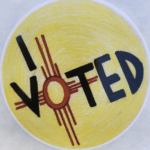 Automatic for the People: More than 8,400 New Mexicans have registered to vote or updated their voter information in the first week since the state launched automatic voter registration at Motor Vehicle Division offices, according to state officials. The milestone demonstrates early success for the new system that automatically registers eligible voters when they renew or apply for driver’s licenses and state identification cards. The program took effect July 1 as part of the New Mexico Voting Rights Act signed into law in 2023. “This is a major step forward for voter access and election modernization in New Mexico,” Secretary of State Maggie Toulouse Oliver said in a news release. “AVR makes voter registration faster, more accurate, and more secure.” Since implementation began July 1, 8,487 New Mexicans have been registered to vote or had their registration updated through the automatic system at MVD offices statewide, according to the Secretary of State’s Office. “By reducing paperwork and ensuring more eligible voters are on the rolls, we’re saving taxpayer money and making our democracy more accessible,” Toulouse Oliver said in the release.
Automatic for the People: More than 8,400 New Mexicans have registered to vote or updated their voter information in the first week since the state launched automatic voter registration at Motor Vehicle Division offices, according to state officials. The milestone demonstrates early success for the new system that automatically registers eligible voters when they renew or apply for driver’s licenses and state identification cards. The program took effect July 1 as part of the New Mexico Voting Rights Act signed into law in 2023. “This is a major step forward for voter access and election modernization in New Mexico,” Secretary of State Maggie Toulouse Oliver said in a news release. “AVR makes voter registration faster, more accurate, and more secure.” Since implementation began July 1, 8,487 New Mexicans have been registered to vote or had their registration updated through the automatic system at MVD offices statewide, according to the Secretary of State’s Office. “By reducing paperwork and ensuring more eligible voters are on the rolls, we’re saving taxpayer money and making our democracy more accessible,” Toulouse Oliver said in the release.
 News from the EAC: The U.S. Election Assistance Commission (EAC) recently announced the first voting system certified to the agency’s Voluntary Voting System Guidelines (VVSG) 2.0. Hart InterCivic’s Verity Vanguard 1.0 is the first voting system to complete certification to the latest standards. “The first voting system certified to VVSG 2.0 marks a major milestone in the EAC’s commitment to advancing the next generation of voting systems. Hart Verity Vanguard 1.0 is the first system certified to these standards, but it will not be the last. The EAC staff has done great work to make this new standard a reality,” EAC Chairman Donald Palmer, Vice Chair Thomas Hicks, Commissioner Christy McCormick, and Commissioner Ben Hovland said in a joint statement. Several steps remain before voters see this and other VVSG 2.0 certified systems at their voting location. State-level testing and certification, funding, procurement planning, staff training, and public testing are part of the process for jurisdictions to deploy new voting equipment. As this process moves forward, the EAC will continue to support election offices to ensure the systems in use at voting locations are secure and accurate. On February 10, 2021, the EAC Commissioners unanimously adopted the newest standard, VVSG 2.0, which was developed with a forward-looking approach that acknowledges the evolving landscape of election technology. The new guidelines are designed to meet the opportunities and challenges of future elections by incorporating updated cybersecurity protections, enhanced accessibility features, and support for more flexible system architectures. These updates improve the voter experience and further safeguard the integrity of the voting process, building on the solid foundation established by previous standards. The EAC now only accepts applications for voting system certification to VVSG 2.0. The only exception is for maintenance updates to systems already certified to VVSG 1.0. However, voting systems certified to VVSG 1.0 standards remain federally certified. These systems can continue to be used securely in accordance with state or local law as all EAC-certified voting systems remain secure, regardless of which VVSG they were certified to.
News from the EAC: The U.S. Election Assistance Commission (EAC) recently announced the first voting system certified to the agency’s Voluntary Voting System Guidelines (VVSG) 2.0. Hart InterCivic’s Verity Vanguard 1.0 is the first voting system to complete certification to the latest standards. “The first voting system certified to VVSG 2.0 marks a major milestone in the EAC’s commitment to advancing the next generation of voting systems. Hart Verity Vanguard 1.0 is the first system certified to these standards, but it will not be the last. The EAC staff has done great work to make this new standard a reality,” EAC Chairman Donald Palmer, Vice Chair Thomas Hicks, Commissioner Christy McCormick, and Commissioner Ben Hovland said in a joint statement. Several steps remain before voters see this and other VVSG 2.0 certified systems at their voting location. State-level testing and certification, funding, procurement planning, staff training, and public testing are part of the process for jurisdictions to deploy new voting equipment. As this process moves forward, the EAC will continue to support election offices to ensure the systems in use at voting locations are secure and accurate. On February 10, 2021, the EAC Commissioners unanimously adopted the newest standard, VVSG 2.0, which was developed with a forward-looking approach that acknowledges the evolving landscape of election technology. The new guidelines are designed to meet the opportunities and challenges of future elections by incorporating updated cybersecurity protections, enhanced accessibility features, and support for more flexible system architectures. These updates improve the voter experience and further safeguard the integrity of the voting process, building on the solid foundation established by previous standards. The EAC now only accepts applications for voting system certification to VVSG 2.0. The only exception is for maintenance updates to systems already certified to VVSG 1.0. However, voting systems certified to VVSG 1.0 standards remain federally certified. These systems can continue to be used securely in accordance with state or local law as all EAC-certified voting systems remain secure, regardless of which VVSG they were certified to.
 VIP Partner Awards: Democracy Works recently announced the winners of the third biannual Voting Information Project (VIP) Partner Awards, recognizing the dedication of election offices throughout the 2024 election cycle. State and local election offices play a critical role in our democracy, overseeing the countless moving parts that ensure elections run effectively. Through the Voting Information Project, Democracy Works partners with 40 state election offices and dozens of local election offices to publish accurate, accessible voting locations, helping millions of voters navigate elections with confidence and combatting the spread of mis-, dis-, and malinformation. Their collaboration with us represents more than just data sharing—it’s a partnership in strengthening democratic participation and building voter confidence. These awards recognize election officials who went above and beyond in sharing accurate data, improving technical systems, and expanding voter access. This year’s honorees include three partners, including our first-ever awardee from a local elections office. This year’s winners are: the Michigan Bureau of Elections, Maricopa County Elections, and the Indiana Election Division
VIP Partner Awards: Democracy Works recently announced the winners of the third biannual Voting Information Project (VIP) Partner Awards, recognizing the dedication of election offices throughout the 2024 election cycle. State and local election offices play a critical role in our democracy, overseeing the countless moving parts that ensure elections run effectively. Through the Voting Information Project, Democracy Works partners with 40 state election offices and dozens of local election offices to publish accurate, accessible voting locations, helping millions of voters navigate elections with confidence and combatting the spread of mis-, dis-, and malinformation. Their collaboration with us represents more than just data sharing—it’s a partnership in strengthening democratic participation and building voter confidence. These awards recognize election officials who went above and beyond in sharing accurate data, improving technical systems, and expanding voter access. This year’s honorees include three partners, including our first-ever awardee from a local elections office. This year’s winners are: the Michigan Bureau of Elections, Maricopa County Elections, and the Indiana Election Division
Personnel News: Michelle Wilcox has retired as the Auglaize County, Ohio board of elections director. McLean County, Illinois Clerk Kathy Michael has announced her candidacy for re-election. Uvalde County, Texas Elections Administrator Melissa Jones has submitted her letter of resignation. Evelyn Mendez is the new Sonoma County, California registrar of voters. State Sen. Jessie Danielson (D-Wheat Ridge) has announced her candidacy for Colorado secretary of state. Winnebago County, Illinois Clerk Lori Gummow announced she would seek re-election to the position in 2026. The Arkansas’ State Board of Election Commissioners voted this week to reprimand and decertify a poll supervisor Kay Holland who was accused of violating state election laws at a North Arkansas polling place last year. Congratulations to Scott Wetzel, a Huron County board of elections precinct election official, who was recently named the 2024 Ohio Precinct Election Official of the Year.
New Research and Resources
 Trust in Elections: One unique aspect of America’s electoral system is its high degree of decentralization, whereby state and local governments retain primary responsibility for election policy and administration in their respective jurisdictions. As a result, differences that arise across the nation provide opportunities for states to learn from one another about the strengths and weaknesses of various election policies. To explore these differences and promote cross-state learning, R Street developed a series of policy studies focused on the unique blend of election policies in states across the country. Starting with three swing states that have played pivotal roles in recent federal elections—Arizona, Georgia, and Pennsylvania—these papers will offer practical lessons to help states continue refining their own election processes while guiding others in efforts to enhance accessibility, integrity, and public trust. Part I focuses on Arizona and its lengthy experience implementing a citizenship verification requirement, heavy reliance on mail-in voting that sometimes introduces administrative challenges, and use of an open primary system that allows participation by the state’s large population of independent voters. Part II highlights Georgia as a longstanding leader in election administration, including its best practices around voter list maintenance, voter ID, and election law training for law enforcement. At the same time, the state’s heavy reliance on electronic voting machines and runoff elections presents opportunities to strengthen its system further. Part III turns to Pennsylvania [coming soon], highlighting opportunities to streamline the state’s mail-in voting system, increase voter participation in the state’s primary elections, and build trust in the process through existing list maintenance procedures and stronger voter ID requirements. Together, these studies seek to provide policy insights that can help build trust in American elections.
Trust in Elections: One unique aspect of America’s electoral system is its high degree of decentralization, whereby state and local governments retain primary responsibility for election policy and administration in their respective jurisdictions. As a result, differences that arise across the nation provide opportunities for states to learn from one another about the strengths and weaknesses of various election policies. To explore these differences and promote cross-state learning, R Street developed a series of policy studies focused on the unique blend of election policies in states across the country. Starting with three swing states that have played pivotal roles in recent federal elections—Arizona, Georgia, and Pennsylvania—these papers will offer practical lessons to help states continue refining their own election processes while guiding others in efforts to enhance accessibility, integrity, and public trust. Part I focuses on Arizona and its lengthy experience implementing a citizenship verification requirement, heavy reliance on mail-in voting that sometimes introduces administrative challenges, and use of an open primary system that allows participation by the state’s large population of independent voters. Part II highlights Georgia as a longstanding leader in election administration, including its best practices around voter list maintenance, voter ID, and election law training for law enforcement. At the same time, the state’s heavy reliance on electronic voting machines and runoff elections presents opportunities to strengthen its system further. Part III turns to Pennsylvania [coming soon], highlighting opportunities to streamline the state’s mail-in voting system, increase voter participation in the state’s primary elections, and build trust in the process through existing list maintenance procedures and stronger voter ID requirements. Together, these studies seek to provide policy insights that can help build trust in American elections.
 QR Codes: President Donald Trump’s executive order this spring caused widespread confusion about the role of QR codes in elections. This week, Verified Voting launched a new map tracking the jurisdictions across the country that use machines to print QR/barcodes on ballots. They also published this explainer on the role of QR/barcodes.
QR Codes: President Donald Trump’s executive order this spring caused widespread confusion about the role of QR codes in elections. This week, Verified Voting launched a new map tracking the jurisdictions across the country that use machines to print QR/barcodes on ballots. They also published this explainer on the role of QR/barcodes.
 Voter Registration Restrictions: CIRCLE research has consistently found that young people face structural and logistical barriers to electoral participation and that policies that make it easier to register and vote tend to increase youth voter turnout. In our most recent analysis of young people’s voter participation in 2024, we found that youth turnout was 49% on average in states that make it easiest to participate through policies like automatic, same-day, and online voter registration. By contrast, in states that make it hardest to register and vote because they do not have such policies in place and/or have voter ID requirements, youth turnout was 44% on average. The landscape of voting policies is constantly changing, with new laws passed and policies implemented at the state level during every election cycle. Attempts to change voting policies at the federal level, like the SAVE Act which passed the House of Representatives in April 2025, have the potential to drastically alter the voter registration landscape across the country. Similar legislation at the state level may also present major challenges to engaging young voters. CIRCLE’s research—along with insights from other scholars and practitioners—suggests that by eliminating facilitative election policies and practices, and by introducing major new requirements like proof of citizenship, such legislation could have a substantial adverse effect on young people’s participation in our democracy.
Voter Registration Restrictions: CIRCLE research has consistently found that young people face structural and logistical barriers to electoral participation and that policies that make it easier to register and vote tend to increase youth voter turnout. In our most recent analysis of young people’s voter participation in 2024, we found that youth turnout was 49% on average in states that make it easiest to participate through policies like automatic, same-day, and online voter registration. By contrast, in states that make it hardest to register and vote because they do not have such policies in place and/or have voter ID requirements, youth turnout was 44% on average. The landscape of voting policies is constantly changing, with new laws passed and policies implemented at the state level during every election cycle. Attempts to change voting policies at the federal level, like the SAVE Act which passed the House of Representatives in April 2025, have the potential to drastically alter the voter registration landscape across the country. Similar legislation at the state level may also present major challenges to engaging young voters. CIRCLE’s research—along with insights from other scholars and practitioners—suggests that by eliminating facilitative election policies and practices, and by introducing major new requirements like proof of citizenship, such legislation could have a substantial adverse effect on young people’s participation in our democracy.
Ballot Measures, Legislation & Rulemaking
 District of Columbia: In November 2024 voters approved Initiative 83, which would bring ranked-choice voting and semi-open primaries to D.C. by as early as 2026. Since then, though, the pending question was whether the council would actually allocate the money to implement the initiative. Chairman Phil Mendelson voted against funding the initiative, siding with segments in the city’s Democratic Party that have opposed any changes to how residents vote. But on July 14 a majority of councilmembers sided with a push from At-Large Councilmember Christina Henderson and Ward 1 Councilmember Brianne Nadeau to fund the part of the initiative dealing with ranked-choice voting. “It is the will of the voters,” Nadeau said. “We can advance something that will make a difference very soon in how we elect leaders in the city.” For his part, At-Large Councilmember Robert White said he wanted to support the will of the voters, and that ranked-choice voting can offer voters more and better choices. But he also asked that his colleagues keep in mind how ranked-choice voting plays out among different racial and economic groups, urging that a deep data dive happen after the first few election cycles. “I don’t think we should feel comfortable ignoring an equity issue,” he said. Ranked-choice voting is moving forward. It will now be left to the D.C. Board of Elections to implement it ahead of next June’s primary election, including rolling out a public education campaign for voters. “I believe we can move forward and work out the kinks,” Henderson said.
District of Columbia: In November 2024 voters approved Initiative 83, which would bring ranked-choice voting and semi-open primaries to D.C. by as early as 2026. Since then, though, the pending question was whether the council would actually allocate the money to implement the initiative. Chairman Phil Mendelson voted against funding the initiative, siding with segments in the city’s Democratic Party that have opposed any changes to how residents vote. But on July 14 a majority of councilmembers sided with a push from At-Large Councilmember Christina Henderson and Ward 1 Councilmember Brianne Nadeau to fund the part of the initiative dealing with ranked-choice voting. “It is the will of the voters,” Nadeau said. “We can advance something that will make a difference very soon in how we elect leaders in the city.” For his part, At-Large Councilmember Robert White said he wanted to support the will of the voters, and that ranked-choice voting can offer voters more and better choices. But he also asked that his colleagues keep in mind how ranked-choice voting plays out among different racial and economic groups, urging that a deep data dive happen after the first few election cycles. “I don’t think we should feel comfortable ignoring an equity issue,” he said. Ranked-choice voting is moving forward. It will now be left to the D.C. Board of Elections to implement it ahead of next June’s primary election, including rolling out a public education campaign for voters. “I believe we can move forward and work out the kinks,” Henderson said.
 Georgia: A special House committee focused on elections held its first meeting at the state Capitol this week, as state lawmakers gathered to solicit testimony from elections officials and activists on how to improve Georgia elections. The committee, tagged as a “blue ribbon” panel, aims to evaluate Georgia’s current election policies and provide recommendations for new election laws ahead of Georgia’s 2026 legislative session. It is chaired by state Rep. Tim Fleming, a Covington Republican, who recently became the first candidate to launch a bid for secretary of state. In his opening remarks, Fleming emphasized the need to restore public confidence in Georgia’s elections. “The legitimacy of our government — local, state and federal — rests squarely on the public’s trust in the electoral process,” he said. “That trust must be earned and maintained through transparency, consistency and integrity at every level, from the precincts in our neighborhoods to the local election superintendent’s offices and counties, to the Secretary of State’s office here in Atlanta.” During its six scheduled meetings, the committee plans to evaluate the role that the secretary of state’s office and the State Election Board play in overseeing elections across the state, Fleming added.
Georgia: A special House committee focused on elections held its first meeting at the state Capitol this week, as state lawmakers gathered to solicit testimony from elections officials and activists on how to improve Georgia elections. The committee, tagged as a “blue ribbon” panel, aims to evaluate Georgia’s current election policies and provide recommendations for new election laws ahead of Georgia’s 2026 legislative session. It is chaired by state Rep. Tim Fleming, a Covington Republican, who recently became the first candidate to launch a bid for secretary of state. In his opening remarks, Fleming emphasized the need to restore public confidence in Georgia’s elections. “The legitimacy of our government — local, state and federal — rests squarely on the public’s trust in the electoral process,” he said. “That trust must be earned and maintained through transparency, consistency and integrity at every level, from the precincts in our neighborhoods to the local election superintendent’s offices and counties, to the Secretary of State’s office here in Atlanta.” During its six scheduled meetings, the committee plans to evaluate the role that the secretary of state’s office and the State Election Board play in overseeing elections across the state, Fleming added.
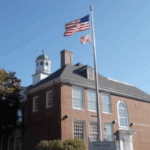 Bedford, Massachusetts Ballot Measure: Bedford voters will consider a different voting method for local elections at a Special Town Meeting on Monday, Nov. 3. If approved by voters, the town will submit a home rule petition to implement ranked choice voting in local elections. A home rule petition is a formal request to the state legislature for authority to enact a law or regulation that is not already granted by general state law. Town Manager Matt Hanson said the process of drafting, authorizing, filing, and waiting for approval from the state legislature can take anywhere from six months to a year. Ranked choice voting was added to the STM warrant at the request of residents Madeleine Kando and Ethan Strominger, who volunteer with Bedford Ranked Choice Voting. The pair attended the June 30 Select Board meeting to inquire about adding such an article to the STM meeting warrant. The Select Board ultimately voted 3-1-1 to include an article on the Nov. 3 STM warrant asking residents if they would like to switch to a ranked choice voting method for local elections.
Bedford, Massachusetts Ballot Measure: Bedford voters will consider a different voting method for local elections at a Special Town Meeting on Monday, Nov. 3. If approved by voters, the town will submit a home rule petition to implement ranked choice voting in local elections. A home rule petition is a formal request to the state legislature for authority to enact a law or regulation that is not already granted by general state law. Town Manager Matt Hanson said the process of drafting, authorizing, filing, and waiting for approval from the state legislature can take anywhere from six months to a year. Ranked choice voting was added to the STM warrant at the request of residents Madeleine Kando and Ethan Strominger, who volunteer with Bedford Ranked Choice Voting. The pair attended the June 30 Select Board meeting to inquire about adding such an article to the STM meeting warrant. The Select Board ultimately voted 3-1-1 to include an article on the Nov. 3 STM warrant asking residents if they would like to switch to a ranked choice voting method for local elections.
Legal Updates
 Alabama: Federal judges will weigh a request to bring Alabama back under the preclearance requirement of the Voting Rights Act after ruling the state intentionally diluted the voting strength of Black residents when drawing congressional lines. Black voters and civil rights organizations, who successfully challenged Alabama’s congressional map, are asking a three-judge panel to require any new congressional maps drawn by state lawmakers to go through federal review before being implemented. The Alabama attorney general and the U.S. Department of Justice oppose the request. The three-judge panel in 2023 ordered the use of a new congressional map in Alabama. The judges selected the new map after saying they were “deeply troubled” that state lawmakers had ignored their directive to draw a second majority-Black district or something close to it. Plaintiffs said Alabama’s actions and the defiance of the court order mirror the state’s actions in the 1960s. “Alabama sought to ignore, evade, and strategically frustrate attempts to remedy racial discrimination,” lawyers for the plaintiffs wrote in a court filing. The request would require new congressional maps drawn through the 2030 Census cycle to undergo federal review by the court before being used. Plaintiffs argue that Alabama’s actions should trigger the so-called “bail-in” section of the Voting Rights Act that enables courts to retain jurisdiction and exercise preclearance power. “Preclearance flips the burden on the State to prove its innocence. That power is extraordinary,” Alabama Attorney General Steve Marshall’s office wrote in a court filing opposing the request. The Justice Department is backing Alabama in asking the judges to reject the request. “Preclearance is permissible only when jurisdictions have engaged in pervasive, flagrant, widespread, and rampant discrimination,” Justice Department lawyers wrote in the filing signed by the acting chief of the voting section. Alabama’s actions did not rise to that level, they argued. Judges set a July 29 hearing on the request.
Alabama: Federal judges will weigh a request to bring Alabama back under the preclearance requirement of the Voting Rights Act after ruling the state intentionally diluted the voting strength of Black residents when drawing congressional lines. Black voters and civil rights organizations, who successfully challenged Alabama’s congressional map, are asking a three-judge panel to require any new congressional maps drawn by state lawmakers to go through federal review before being implemented. The Alabama attorney general and the U.S. Department of Justice oppose the request. The three-judge panel in 2023 ordered the use of a new congressional map in Alabama. The judges selected the new map after saying they were “deeply troubled” that state lawmakers had ignored their directive to draw a second majority-Black district or something close to it. Plaintiffs said Alabama’s actions and the defiance of the court order mirror the state’s actions in the 1960s. “Alabama sought to ignore, evade, and strategically frustrate attempts to remedy racial discrimination,” lawyers for the plaintiffs wrote in a court filing. The request would require new congressional maps drawn through the 2030 Census cycle to undergo federal review by the court before being used. Plaintiffs argue that Alabama’s actions should trigger the so-called “bail-in” section of the Voting Rights Act that enables courts to retain jurisdiction and exercise preclearance power. “Preclearance flips the burden on the State to prove its innocence. That power is extraordinary,” Alabama Attorney General Steve Marshall’s office wrote in a court filing opposing the request. The Justice Department is backing Alabama in asking the judges to reject the request. “Preclearance is permissible only when jurisdictions have engaged in pervasive, flagrant, widespread, and rampant discrimination,” Justice Department lawyers wrote in the filing signed by the acting chief of the voting section. Alabama’s actions did not rise to that level, they argued. Judges set a July 29 hearing on the request.
 Arizona: The Republican National Committee and Arizona Republican Party are challenging the voting eligibility of some U.S. citizens who have always lived abroad, in what they’re calling a broader strategy ahead of next year’s midterms to clean up voter rolls and improve voter confidence. The GOP terms the voters they are targeting as “never residents” because they are U.S. citizens but haven’t lived in the United States. Most frequently, they are children of U.S. citizens who have been in the military, or lived overseas for other reasons. Three-quarters of states have laws on the books allowing such citizens to vote by absentee or mail ballot in the same state where their parents or other relatives last lived or are registered. Arizona is one of these states, and allows such expatriates to vote in federal, state, and local elections. According to Votebeat, the lawsuit, filed June 30, claims that, because the state’s overseas and military voters are more Democratic than the voter roll as a whole, the law gives Democrats an unfair advantage. It asks the court to declare the law illegal and stop Arizona from registering any more voters who have never lived in the U.S.
Arizona: The Republican National Committee and Arizona Republican Party are challenging the voting eligibility of some U.S. citizens who have always lived abroad, in what they’re calling a broader strategy ahead of next year’s midterms to clean up voter rolls and improve voter confidence. The GOP terms the voters they are targeting as “never residents” because they are U.S. citizens but haven’t lived in the United States. Most frequently, they are children of U.S. citizens who have been in the military, or lived overseas for other reasons. Three-quarters of states have laws on the books allowing such citizens to vote by absentee or mail ballot in the same state where their parents or other relatives last lived or are registered. Arizona is one of these states, and allows such expatriates to vote in federal, state, and local elections. According to Votebeat, the lawsuit, filed June 30, claims that, because the state’s overseas and military voters are more Democratic than the voter roll as a whole, the law gives Democrats an unfair advantage. It asks the court to declare the law illegal and stop Arizona from registering any more voters who have never lived in the U.S.
According to Votebeat, Cochise County wants an insurer to cover $300,000 in legal bills for a county supervisor charged with trying to delay certification of the 2022 midterm election results. A lawyer representing the county sent a letter July 11 to the Arizona Counties Insurance Pool, explaining that the county had received a demand from Supervisor Thomas Crosby, a Republican, that the county cover his legal costs in the case, which Crosby’s lawyer described as “a wrongful criminal prosecution.” By asking the government insurance pool to cover the costs on behalf of the county, the two other county supervisors, Republicans Frank Antenori and Kathleen Gomez, are signaling support for Crosby’s fight against the charges for his alleged actions, which occurred years before they took office. An outside lawyer representing the county, Michael J. Rusing of the firm Rusing Lopez & Lizardi, wrote that it would be “appropriate” for the pool to cover the claim for Crosby’s legal bills.
According to Courthouse News Service, a Ninth Circuit panel appears split on two provisions of Arizona’s elections procedures manual enjoined by a federal judge after conservative groups challenged them over potential voter suppression. Secretary of State Adrian Fontes last year updated the 2023 manual, published at the end of every odd year, to address two growing concerns. The first section challenged in federal court, known as the “canvass provision,” requires the secretary of state to throw out the votes of a county that refuses to canvass its votes by its deadline if the secretary has exhausted all other remedies. The second addition, called the speech provision, expands the list of what constitutes voter intimidation in Arizona, including “aggressive behavior, such as raising one’s voice or taunting a voter or poll worker,” and “using threatening, insulting, or offensive language to a voter or poll worker.” A federal judge enjoined both provisions before the 2024 general election. Defendants Fontes and Attorney General Kris Mayes appealed the order, arguing in Pasadena this week that the plaintiffs showed no likelihood of harm. “The theory of injury is extraordinarily speculative,” Joshua Bendor told the panel, representing the attorney general’s office. He argued that the situation in Cochise County, in which two Republican supervisors tried to delay the canvass to instead platform election conspiracy theories, proved that voters have nothing to worry about because the secretary was able to enforce the canvass before reaching the point of voter disenfranchisement.
 Colorado: Sally Maxedon will serve 100 hours of community service for her role in a scheme to steal mail-in ballots in Mesa County ahead of last November’s election. Maxedon, 60, conspired with former postal worker Vicki Stuart to steal more than a dozen ballots from would-be voters before they could be delivered. Stuart was sentenced to 5 years in prison for her role in the case. Twenty-first Judicial District Attorney Dan Rubinstein said the discrepancies in the two plea agreements had to do with the difference in the role that each woman played, noting that the prosecution of Stuart was due in large part to cooperation from Maxedon. “Ms. Stuart was capable and, in fact, did follow through on doing all of this all alone and enlisted Ms. Maxedon’s help in doing part of it. But Ms. Maxedon could never have done any of this without Ms. Stuart,” Rubinstein said. “It was Ms. Stuart, as the mail carrier, who had access to the ballots, who specifically selected the names of the people, and that she seemed to be targeting people that she thought might be illegal or might possibly vote differently than she wanted the votes.”
Colorado: Sally Maxedon will serve 100 hours of community service for her role in a scheme to steal mail-in ballots in Mesa County ahead of last November’s election. Maxedon, 60, conspired with former postal worker Vicki Stuart to steal more than a dozen ballots from would-be voters before they could be delivered. Stuart was sentenced to 5 years in prison for her role in the case. Twenty-first Judicial District Attorney Dan Rubinstein said the discrepancies in the two plea agreements had to do with the difference in the role that each woman played, noting that the prosecution of Stuart was due in large part to cooperation from Maxedon. “Ms. Stuart was capable and, in fact, did follow through on doing all of this all alone and enlisted Ms. Maxedon’s help in doing part of it. But Ms. Maxedon could never have done any of this without Ms. Stuart,” Rubinstein said. “It was Ms. Stuart, as the mail carrier, who had access to the ballots, who specifically selected the names of the people, and that she seemed to be targeting people that she thought might be illegal or might possibly vote differently than she wanted the votes.”
A Denver-based conservative radio host settled defamation claims this week filed by a former Dominion Voting Systems employee dragged into the center of 2020 election fraud conspiracies. “Plaintiff Eric Coomer, Ph.D., defendant Salem Media of Colorado Inc. and defendant Randy Corporon have fully and finally settled the disputes among them concerning plaintiff’s claims against the defendants, with each party to pay his or its own attorney’s fees, costs and expenses,” the parties’ attorneys wrote in a joint stipulation for dismissal with prejudice filed June 8. On July 15, Second Judicial District Judge Heidi Kutcher approved the request with a single page stating “action taken.”
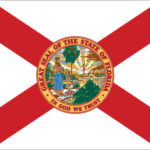 Florida: Federal District Judge Judge Mark Walker has temporarily blocked part of a Florida law that made new rules for how citizens can change the state constitution. The groups working to get proposed amendments on the ballot say that means their work can move forward—at least for now. Walker’s ruling pauses part of a law banning people who aren’t U.S. or Florida residents from gathering petitions. In his ruling, Walker determined that the plaintiffs are likely to succeed on their challenges against the parts of the law he put on hold. The rest of the new law went into effect on July 1st. The state has maintained that the law is needed after they say the 2024 election season saw instances of fraud by petition gatherers. Walker rejected that argument, but let several parts of the new law stand. Those include a 90-day moratorium on supervisors of election processing the petitions and a rule that requires people who collect more than 25 petitions to register with the state.
Florida: Federal District Judge Judge Mark Walker has temporarily blocked part of a Florida law that made new rules for how citizens can change the state constitution. The groups working to get proposed amendments on the ballot say that means their work can move forward—at least for now. Walker’s ruling pauses part of a law banning people who aren’t U.S. or Florida residents from gathering petitions. In his ruling, Walker determined that the plaintiffs are likely to succeed on their challenges against the parts of the law he put on hold. The rest of the new law went into effect on July 1st. The state has maintained that the law is needed after they say the 2024 election season saw instances of fraud by petition gatherers. Walker rejected that argument, but let several parts of the new law stand. Those include a 90-day moratorium on supervisors of election processing the petitions and a rule that requires people who collect more than 25 petitions to register with the state.
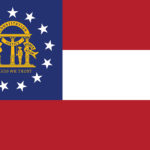 Georgia: The Democratic and Republican parties in DeKalb County have nominated individuals to serve on the DeKalb Elections Board. A judge has rejected one of the Republican nominees. DeKalb Superior Court Chief Judge Shondeana Morris accepted GOP nominee Gail Lee, but rejected Bill Henderson’s nomination. Travis Bowden was then nominated and accepted. DeKalb County Republican Party Chairman Kendra Foltz Biegalski said she was pleased that Lee and Bowden were appointed. “Their dedication to fair and transparent elections strengthens our commitment to voter integrity,” she said. “We believe Bill Henderson’s technical expertise makes him an excellent candidate for future BRE roles and we hope future nominations allow more than 36 hours to ensure a thorough selection process.” The judge approved the nominations June 30. The board members will serve on the board from 2025-27. In a letter to DeKalb Elections Executive Director Keisha Smith dated June 26, Morris said she received more than 200 pieces of correspondence regarding the Republican nominees. She also reviewed some of Henderson’s public statements on his views of the elections board and election matters. “Having considered all those things, I do not believe that appointing Mr. Henderson to the Board would further the goals of ensuring that elections are credible and trustworthy in the eyes of the public,” Morris said.
Georgia: The Democratic and Republican parties in DeKalb County have nominated individuals to serve on the DeKalb Elections Board. A judge has rejected one of the Republican nominees. DeKalb Superior Court Chief Judge Shondeana Morris accepted GOP nominee Gail Lee, but rejected Bill Henderson’s nomination. Travis Bowden was then nominated and accepted. DeKalb County Republican Party Chairman Kendra Foltz Biegalski said she was pleased that Lee and Bowden were appointed. “Their dedication to fair and transparent elections strengthens our commitment to voter integrity,” she said. “We believe Bill Henderson’s technical expertise makes him an excellent candidate for future BRE roles and we hope future nominations allow more than 36 hours to ensure a thorough selection process.” The judge approved the nominations June 30. The board members will serve on the board from 2025-27. In a letter to DeKalb Elections Executive Director Keisha Smith dated June 26, Morris said she received more than 200 pieces of correspondence regarding the Republican nominees. She also reviewed some of Henderson’s public statements on his views of the elections board and election matters. “Having considered all those things, I do not believe that appointing Mr. Henderson to the Board would further the goals of ensuring that elections are credible and trustworthy in the eyes of the public,” Morris said.
 Illinois: The Chicago Board of Election Commissioners had previously argued that the state’s election code barred its employees from forming a union. But the law shouldn’t be read that way, administrative law Judge Anna Hamburg-Gal found in an order this week that paves the way for official recognition of the union. City elections workers, including clerks, polling place investigators and equipment specialists, first sought union representation with the Service Employees International Union Local 73 nearly a year ago, saying they were frustrated by “stagnant” wages that didn’t keep pace with the cost of living in Chicago. But the board of election pushed back on the proposed bargaining unit of 80 to 90 workers. Attorneys for the board argued that because election workers are prohibited from engaging in “political activity” by the state’s election code, they should therefore be barred from joining SEIU. In legal filings, hired counsel for the board of election noted that SEIU 73 is politically active, lobbies legislatively and makes endorsements and financial contributions to political candidates. But in her order, Hamburg-Gal found that the state’s election code “need not be read as prohibiting unionization by (board of election) employees.” “An employee’s participation in a union does not necessarily equate to engagement in political activity,” she wrote. “Although the petitioner here engages in political activity, most of the Employer’s arguments would lose their force if the employees had sought representation by a newly formed labor organization that had committed not to become engaged in the political process.” The board of election has two weeks to appeal the order.
Illinois: The Chicago Board of Election Commissioners had previously argued that the state’s election code barred its employees from forming a union. But the law shouldn’t be read that way, administrative law Judge Anna Hamburg-Gal found in an order this week that paves the way for official recognition of the union. City elections workers, including clerks, polling place investigators and equipment specialists, first sought union representation with the Service Employees International Union Local 73 nearly a year ago, saying they were frustrated by “stagnant” wages that didn’t keep pace with the cost of living in Chicago. But the board of election pushed back on the proposed bargaining unit of 80 to 90 workers. Attorneys for the board argued that because election workers are prohibited from engaging in “political activity” by the state’s election code, they should therefore be barred from joining SEIU. In legal filings, hired counsel for the board of election noted that SEIU 73 is politically active, lobbies legislatively and makes endorsements and financial contributions to political candidates. But in her order, Hamburg-Gal found that the state’s election code “need not be read as prohibiting unionization by (board of election) employees.” “An employee’s participation in a union does not necessarily equate to engagement in political activity,” she wrote. “Although the petitioner here engages in political activity, most of the Employer’s arguments would lose their force if the employees had sought representation by a newly formed labor organization that had committed not to become engaged in the political process.” The board of election has two weeks to appeal the order.
 Maine: Maine’s highest court has OK’d the language of a voter identification referendum question that highlights other substantial changes the reform would make to state voting laws. Alex Titcomb, campaign manager for the ballot question committee “Voter ID for ME,” and four other registered voters challenged the wording for a citizen initiative to change various election laws, including the implementation of a photo ID requirement for voting. They argued that the language did not meet the statutory requirements of being understandable and not misleading to a reasonable voter, but the courts disagreed. The Dinner Table PAC launched the campaign in April 2024 as an effort to require voters to show photo identification at the polls. However, the official five-page petition submitted to the state in January seeks to change additional aspects of Maine election law, such as absentee voting. Secretary of State Shenna Bellows called the petition “a wolf in sheep’s clothing” when it was first submitted to the state. When Bellows released the wording for the question that will appear on the November ballot, it encompassed the changes beyond photo ID requirements. It will read: “Do you want to change Maine election laws to eliminate two days of absentee voting, prohibit requests for absentee ballots by phone or family members, end ongoing absentee voter status for seniors and people with disabilities, ban prepaid postage on absentee ballot return envelopes, limit the number of drop boxes, require voters to show certain photo ID before voting, and make other changes to our elections?” The Superior Court affirmed the question’s wording, finding that it is understandable and not misleading. Titcomb appealed the decision, arguing that the language used confusing terms and singled out the effect on seniors and people with disabilities. The Maine Supreme Judicial Court then reviewed the case and upheld the Superior Court’s judgement. In its decision, issued July 11, the court noted that the language accurately reflected the proposed legislation and used terms that would be clear to an informed voter. While the court also acknowledged that the question was longer than usual, it said that is necessary to convey the various changes proposed.
Maine: Maine’s highest court has OK’d the language of a voter identification referendum question that highlights other substantial changes the reform would make to state voting laws. Alex Titcomb, campaign manager for the ballot question committee “Voter ID for ME,” and four other registered voters challenged the wording for a citizen initiative to change various election laws, including the implementation of a photo ID requirement for voting. They argued that the language did not meet the statutory requirements of being understandable and not misleading to a reasonable voter, but the courts disagreed. The Dinner Table PAC launched the campaign in April 2024 as an effort to require voters to show photo identification at the polls. However, the official five-page petition submitted to the state in January seeks to change additional aspects of Maine election law, such as absentee voting. Secretary of State Shenna Bellows called the petition “a wolf in sheep’s clothing” when it was first submitted to the state. When Bellows released the wording for the question that will appear on the November ballot, it encompassed the changes beyond photo ID requirements. It will read: “Do you want to change Maine election laws to eliminate two days of absentee voting, prohibit requests for absentee ballots by phone or family members, end ongoing absentee voter status for seniors and people with disabilities, ban prepaid postage on absentee ballot return envelopes, limit the number of drop boxes, require voters to show certain photo ID before voting, and make other changes to our elections?” The Superior Court affirmed the question’s wording, finding that it is understandable and not misleading. Titcomb appealed the decision, arguing that the language used confusing terms and singled out the effect on seniors and people with disabilities. The Maine Supreme Judicial Court then reviewed the case and upheld the Superior Court’s judgement. In its decision, issued July 11, the court noted that the language accurately reflected the proposed legislation and used terms that would be clear to an informed voter. While the court also acknowledged that the question was longer than usual, it said that is necessary to convey the various changes proposed.
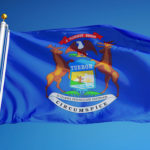 Michigan: According to the Michigan Advance, attorney Stefanie Lambert Junttila made a successful plea to an Oakland County Circuit judge to adjourn her trial, which had been set to start Monday, arguing testimony in another case contradicted information that led to her indictment in 2023. Lambert Junttila stands accused of attempting to access and tamper with voting tabulators following the 2020 election, in which former President Joe Biden defeated now President Donald Trump. According to documents filed by Special Prosecutor DJ Hilson, Lambert Junttila was “frequently” present in Oakland County hotel rooms and residences where individuals performed “testing” and/or experiments on the machines. While Lambert Junttila was initially set to go to trial in October 2024, the case has been repeatedly pushed back, with Judge Jeffery S. Matis telling the court room July 11 this case is the oldest on his docket. Alongside her case in Oakland County, Lambert Junttila faces charges in Hillsdale County, where it’s alleged that she and former Adams Township Clerk Stephanie Scott permitted an unauthorized computer examiner to access voter data concerning the 2020 election, which included non-public information.
Michigan: According to the Michigan Advance, attorney Stefanie Lambert Junttila made a successful plea to an Oakland County Circuit judge to adjourn her trial, which had been set to start Monday, arguing testimony in another case contradicted information that led to her indictment in 2023. Lambert Junttila stands accused of attempting to access and tamper with voting tabulators following the 2020 election, in which former President Joe Biden defeated now President Donald Trump. According to documents filed by Special Prosecutor DJ Hilson, Lambert Junttila was “frequently” present in Oakland County hotel rooms and residences where individuals performed “testing” and/or experiments on the machines. While Lambert Junttila was initially set to go to trial in October 2024, the case has been repeatedly pushed back, with Judge Jeffery S. Matis telling the court room July 11 this case is the oldest on his docket. Alongside her case in Oakland County, Lambert Junttila faces charges in Hillsdale County, where it’s alleged that she and former Adams Township Clerk Stephanie Scott permitted an unauthorized computer examiner to access voter data concerning the 2020 election, which included non-public information.
The Michigan Republican Party and the Republican National Committee had standing to sue Flint officials for failing to appoint enough GOP inspectors during the 2022 election, the Michigan Supreme Court ruled on July 14. In an order issued for MIGOP v. Donahue, the high court reversed the previous decision of the Court of Appeals and kicked the case back to the Genesee County Circuit Court. Chief Justice Megan Cavanagh dissented but did not explain her reasoning for why she would deny leave to appeal. That left the court’s lone conservative, Justice Brian Zahra, to join the liberal majority of Justice Richard Bernstein, Justice Elizabeth Welch, Justice Kyra Harris Bolden and Justice Kimberly Thomas in remanding the case. The case centers around Republican contention that Flint violated state election law because it did not appoint “as nearly as possible” the same amount of election inspectors from each major party in the 2022 primary and general election. The Court of Appeals ruled 2-1 that the two political parties lacked standing to bring their claims against Flint City Clerk Davina Donahue, former Flint City Attorney William Kim and Flint City Assessor Stacie Kaake.
 Missouri: The Jackson County Election Board (JCEB) and Kansas City Election Board (KCEB) are suing Jackson County Executive Frank White Jr. and Mary Jo Spino, clerk of the Jackson County Legislature. The lawsuit accuses White and Spino of trying to hold a special election – for the recall of White – on a date that does not comply with state or federal election laws. “The sole purpose of this legal action is to ensure that any recall election complies with Missouri and federal election laws, which establish critical timelines and procedural requirements designed to protect voters’ rights,” the lawsuit reads. The election boards say in the lawsuit that they are “obligated to ensure that all elections under their supervision meet legal requirements, protect military voters’ rights, and provide proper notice to all eligible voters.” On Tuesday, July 8, Jackson County Counselor Bryan Covinsky said White had the authority to veto the recall ordinance – even though it’s about him. As of late Tuesday afternoon, White still hasn’t signed or vetoed the recall election ordinance; therefore, Spino hasn’t certified the election for the JCEB and the KCEB to continue their normal election procedures. The lawsuit was filed to stop White and Spino from holding a recall election on Aug. 26, 2025.
Missouri: The Jackson County Election Board (JCEB) and Kansas City Election Board (KCEB) are suing Jackson County Executive Frank White Jr. and Mary Jo Spino, clerk of the Jackson County Legislature. The lawsuit accuses White and Spino of trying to hold a special election – for the recall of White – on a date that does not comply with state or federal election laws. “The sole purpose of this legal action is to ensure that any recall election complies with Missouri and federal election laws, which establish critical timelines and procedural requirements designed to protect voters’ rights,” the lawsuit reads. The election boards say in the lawsuit that they are “obligated to ensure that all elections under their supervision meet legal requirements, protect military voters’ rights, and provide proper notice to all eligible voters.” On Tuesday, July 8, Jackson County Counselor Bryan Covinsky said White had the authority to veto the recall ordinance – even though it’s about him. As of late Tuesday afternoon, White still hasn’t signed or vetoed the recall election ordinance; therefore, Spino hasn’t certified the election for the JCEB and the KCEB to continue their normal election procedures. The lawsuit was filed to stop White and Spino from holding a recall election on Aug. 26, 2025.
 New Jersey: Superior Court Judge Kelly Conlon partially approved a recount request filed by an Assembly candidate in Bergen County who finished less than half a point behind his closest opponent — but the candidate’s request to inspect ballots was denied. Demarest Councilman David Jiang, a Democrat, finished third in a four-person race last month for two spots on the November ballot in the 39th Legislative District, which covers a northern swath of Bergen County. Jiang ran 137 votes behind former Woodcliff Lake Councilwoman Donna Abene. Conlon approved Jiang’s request to rerun machine vote totals but denied his push to hand review all ballots, meaning the review will be limited to in-person machine votes cast on or before election day. Mail ballots will be processed through tallying machines but won’t be subject to a hand review, said Michael Ash, who represented Jiang. “This recount … is vital in order to ensure that the voters of District 39 have properly had their votes counted, their votes exercised, and making sure that the right individual was elected to the seat,” Ash said during arguments this week. He told the New Jersey Monitor the decision marked “a good day for the checks on Democratic processes.”
New Jersey: Superior Court Judge Kelly Conlon partially approved a recount request filed by an Assembly candidate in Bergen County who finished less than half a point behind his closest opponent — but the candidate’s request to inspect ballots was denied. Demarest Councilman David Jiang, a Democrat, finished third in a four-person race last month for two spots on the November ballot in the 39th Legislative District, which covers a northern swath of Bergen County. Jiang ran 137 votes behind former Woodcliff Lake Councilwoman Donna Abene. Conlon approved Jiang’s request to rerun machine vote totals but denied his push to hand review all ballots, meaning the review will be limited to in-person machine votes cast on or before election day. Mail ballots will be processed through tallying machines but won’t be subject to a hand review, said Michael Ash, who represented Jiang. “This recount … is vital in order to ensure that the voters of District 39 have properly had their votes counted, their votes exercised, and making sure that the right individual was elected to the seat,” Ash said during arguments this week. He told the New Jersey Monitor the decision marked “a good day for the checks on Democratic processes.”
 North Dakota: The Turtle Mountain Band of Chippewa, Spirit Lake Nation and a group of tribal citizens asked the U.S. Supreme Court to keep North Dakota’s district map in place while it considers whether to review a voting discrimination lawsuit against the state. The plaintiffs filed suit against North Dakota over a 2021 redistricting map they say diluted the power of Indigenous voters in violation of the federal Voting Rights Act. North Dakota U.S. District Court Judge Peter Welte in 2023 concluded the map is discriminatory and ordered the state to adopt different district lines, but the 8th Circuit reversed his decision in May. The appellate court’s ruling found that private citizens have no means of filing lawsuits under the Voting Rights Act to challenge racially discriminatory voting practices. The 8th Circuit indicated it would send the case back to Welte and direct him to dismiss the lawsuit. The plaintiffs are getting ready to ask the Supreme Court to review the lawsuit. On July 15, they requested that the court allow Welte’s map to stay in place until a final decision in the case is reached. The plaintiffs said in court filings they could suffer lasting harm if the 2021 map is allowed to go back into effect. On July 16, Justice Brett Kavanaugh granted the tribes temporary reprieve by issuing an administrative stay. The Donald Trump appointee prevented changes to North Dakota’s 2021 redistricting maps while the justices review the emergency appeal from the plaintiffs. Kavanaugh’s administrative pause will prevent the Eighth Circuit’s ruling from going into effect while the tribes’ emergency appeal is considered by the justices. The court requested a response from North Dakota Secretary of State Michael Howe by July 22.
North Dakota: The Turtle Mountain Band of Chippewa, Spirit Lake Nation and a group of tribal citizens asked the U.S. Supreme Court to keep North Dakota’s district map in place while it considers whether to review a voting discrimination lawsuit against the state. The plaintiffs filed suit against North Dakota over a 2021 redistricting map they say diluted the power of Indigenous voters in violation of the federal Voting Rights Act. North Dakota U.S. District Court Judge Peter Welte in 2023 concluded the map is discriminatory and ordered the state to adopt different district lines, but the 8th Circuit reversed his decision in May. The appellate court’s ruling found that private citizens have no means of filing lawsuits under the Voting Rights Act to challenge racially discriminatory voting practices. The 8th Circuit indicated it would send the case back to Welte and direct him to dismiss the lawsuit. The plaintiffs are getting ready to ask the Supreme Court to review the lawsuit. On July 15, they requested that the court allow Welte’s map to stay in place until a final decision in the case is reached. The plaintiffs said in court filings they could suffer lasting harm if the 2021 map is allowed to go back into effect. On July 16, Justice Brett Kavanaugh granted the tribes temporary reprieve by issuing an administrative stay. The Donald Trump appointee prevented changes to North Dakota’s 2021 redistricting maps while the justices review the emergency appeal from the plaintiffs. Kavanaugh’s administrative pause will prevent the Eighth Circuit’s ruling from going into effect while the tribes’ emergency appeal is considered by the justices. The court requested a response from North Dakota Secretary of State Michael Howe by July 22.
 Oregon: A new lawsuit seeks to break the stranglehold Oregon’s two major political primaries have on legislative and statewide elections. The nonprofit Our Primary Voice and one of its members, Mark Porter, a resident of Clackamas County, filed the lawsuit on June 25 in Marion County Circuit Court against the state and the state’s top elections official, Secretary of State Tobias Read. In the lawsuit, Porter describes a fundamental conflict between the Oregon Constitution and state election laws. The constitution, Porter notes, lays out the requirements for voting: “A citizen is ‘entitled to vote in all elections’ if the citizen meets the three qualifications listed in [Article II, section 2(1) of the constitution]: age, residency, and registration,” the lawsuit says. “The Oregon Constitution does not list any other qualifications for a citizen to be entitled to vote in all elections.” In previous years, various groups have tried various ballot initiatives and measures to open Oregon’s primaries. But neither major party in Oregon has gotten behind the effort. Open-primary ballot measures failed in 2008 and 2014. A 2024 campaign failed to gather the number of signatures required to make the ballot.
Oregon: A new lawsuit seeks to break the stranglehold Oregon’s two major political primaries have on legislative and statewide elections. The nonprofit Our Primary Voice and one of its members, Mark Porter, a resident of Clackamas County, filed the lawsuit on June 25 in Marion County Circuit Court against the state and the state’s top elections official, Secretary of State Tobias Read. In the lawsuit, Porter describes a fundamental conflict between the Oregon Constitution and state election laws. The constitution, Porter notes, lays out the requirements for voting: “A citizen is ‘entitled to vote in all elections’ if the citizen meets the three qualifications listed in [Article II, section 2(1) of the constitution]: age, residency, and registration,” the lawsuit says. “The Oregon Constitution does not list any other qualifications for a citizen to be entitled to vote in all elections.” In previous years, various groups have tried various ballot initiatives and measures to open Oregon’s primaries. But neither major party in Oregon has gotten behind the effort. Open-primary ballot measures failed in 2008 and 2014. A 2024 campaign failed to gather the number of signatures required to make the ballot.
 Pennsylvania: The U.S. Third Circuit Court of Appeals dismissed Fulton County’s lawsuit against Dominion Voting Systems. The lawsuit was filed by the Fulton County Board of Elections, current county commissioner Randy Bunch and former county commissioner Stuart Ulsh. In a ruling filed June 23, Chief Judge Michael A. Chagares and circuit judges Tamika Montgomery-Reeves and Theodore McKee upheld a ruling by the U.S. District Court for the Middle District of Pennsylvania. The lower court’s ruling determined that the Board of Elections, Bunch, and Ulsh are not parties to an agreement between the county and Dominion Voting Systems and therefore lack standing to sue. The district court ruled that the county itself, which is a party to the agreement, is not a plaintiff in the suit. The court also ruled that, even if they did have standing, “they had failed to allege that the decertification of the voting system was attributable to Dominion rather than to the County itself.”
Pennsylvania: The U.S. Third Circuit Court of Appeals dismissed Fulton County’s lawsuit against Dominion Voting Systems. The lawsuit was filed by the Fulton County Board of Elections, current county commissioner Randy Bunch and former county commissioner Stuart Ulsh. In a ruling filed June 23, Chief Judge Michael A. Chagares and circuit judges Tamika Montgomery-Reeves and Theodore McKee upheld a ruling by the U.S. District Court for the Middle District of Pennsylvania. The lower court’s ruling determined that the Board of Elections, Bunch, and Ulsh are not parties to an agreement between the county and Dominion Voting Systems and therefore lack standing to sue. The district court ruled that the county itself, which is a party to the agreement, is not a plaintiff in the suit. The court also ruled that, even if they did have standing, “they had failed to allege that the decertification of the voting system was attributable to Dominion rather than to the County itself.”
Ballot PA Action, a coalition aimed at overturning the state’s closed primary laws, announced this week they have filed a petition asking the state Supreme Court to rule primary election laws in Pennsylvania are unconstitutional. “We’re speaking to the seven justices of the Pennsylvania Supreme Court, and we aim to convince them that excluding independent voters from primary elections is not just unfair in some vague, moral sense, but that it violates the Pennsylvania Constitution,” said David Thornburgh, chairman of Ballot PA Action. Pennsylvania, home to approximately 1.4 million people registered as independent, unaffiliated, or members of a third party, is one of at least nine states that doesn’t allow independent voters to participate in primary elections. That means to cast a ballot in a party’s primary, a voter must be registered with that particular political party. “If we are successful, then the current statute will be declared unconstitutional, and therefore it will be non-functional, and that will mean immediately that independents can vote in party primaries,” said Shanin Specter, co-founding Partner, Kline & Specter PC, the legal firm representing the group. “The legislature would be free to fashion other potential schemes with respect to voting, but such a scheme would have to protect the right of Independents to vote in primary elections, and…that’s the core of what we’re seeking,” Specter added.
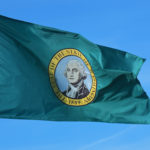 Washington: Tim Hazelo of Island County is facing up to a year in jail after refusing to wear a mask in an election center. Hazelo was charged with two crimes over a dispute about the county auditor’s mask mandate in the election office while he tried to observe the ballot counting process last fall. The case went to trial last week. It took the jury about 2.5 hours to find Hazelo guilty of unauthorized access to a voting center, which is a felony, and criminal trespass, a gross misdemeanor. Hazelo had also been previously charged with disorderly conduct, but that charge was dismissed. This all stems from an incident on November 4, 2024, at the Island County Elections office, where Hazelo tried to observe the ballot counting process without a mask. Island County Auditor Sheilah Crider testified that she had imposed a mask mandate because nearly half her staff had previously gotten sick with COVID-19, and she couldn’t afford to have that happen again during an election. Crider also testified that they were concerned after dangerous substances like fentanyl had been found in ballots in other counties. In closing arguments, Island County Prosecuting Attorney Greg Banks argued the case isn’t about masks, but about following the rules that are set by the auditor for election observers.
Washington: Tim Hazelo of Island County is facing up to a year in jail after refusing to wear a mask in an election center. Hazelo was charged with two crimes over a dispute about the county auditor’s mask mandate in the election office while he tried to observe the ballot counting process last fall. The case went to trial last week. It took the jury about 2.5 hours to find Hazelo guilty of unauthorized access to a voting center, which is a felony, and criminal trespass, a gross misdemeanor. Hazelo had also been previously charged with disorderly conduct, but that charge was dismissed. This all stems from an incident on November 4, 2024, at the Island County Elections office, where Hazelo tried to observe the ballot counting process without a mask. Island County Auditor Sheilah Crider testified that she had imposed a mask mandate because nearly half her staff had previously gotten sick with COVID-19, and she couldn’t afford to have that happen again during an election. Crider also testified that they were concerned after dangerous substances like fentanyl had been found in ballots in other counties. In closing arguments, Island County Prosecuting Attorney Greg Banks argued the case isn’t about masks, but about following the rules that are set by the auditor for election observers.
 Wisconsin: A three-judge panel on the 7th U.S. Circuit Court of Appeals ruled against a Wisconsin town that disavowed electronic voting machines, siding with the U.S. Justice Department’s argument that this would unfairly harm voters with disabilities. In 2023, Thornapple voted to stop using electronic voting machines, in favor of allowing only hand-marked ballots. They did without the machines for two elections in a row, in April and August 2024.The DOJ sued the town in September 2024, arguing that its decision violated the Help America Vote Act, which requires every “voting system” to be accessible for voters with disabilities. Accessible voting machines allow voters with disabilities to hear the options on the ballot and use a touch-sensitive device to mark it. The town argued that it wasn’t subject to the federal law’s accessibility provision because its use of paper ballots didn’t constitute a “voting system.” A district court judge rejected the town’s argument last September, and ordered it to use electronic voting machines for the November presidential election. The town appealed that order, but did use a machine in November. This week, the 7th Circuit panel affirmed the lower-court order, finding that “individuals with disabilities would lack the opportunity to vote privately and independently if they only had access to a paper ballot.” The court based that finding partially on Thornapple Chief Inspector Suzanne Pinnow’s testimony about a blind woman who relied on her daughter’s assistance to fill out a ballot, and a man who had a stroke and who needed Pinnow to guide his hand so he could mark a ballot.
Wisconsin: A three-judge panel on the 7th U.S. Circuit Court of Appeals ruled against a Wisconsin town that disavowed electronic voting machines, siding with the U.S. Justice Department’s argument that this would unfairly harm voters with disabilities. In 2023, Thornapple voted to stop using electronic voting machines, in favor of allowing only hand-marked ballots. They did without the machines for two elections in a row, in April and August 2024.The DOJ sued the town in September 2024, arguing that its decision violated the Help America Vote Act, which requires every “voting system” to be accessible for voters with disabilities. Accessible voting machines allow voters with disabilities to hear the options on the ballot and use a touch-sensitive device to mark it. The town argued that it wasn’t subject to the federal law’s accessibility provision because its use of paper ballots didn’t constitute a “voting system.” A district court judge rejected the town’s argument last September, and ordered it to use electronic voting machines for the November presidential election. The town appealed that order, but did use a machine in November. This week, the 7th Circuit panel affirmed the lower-court order, finding that “individuals with disabilities would lack the opportunity to vote privately and independently if they only had access to a paper ballot.” The court based that finding partially on Thornapple Chief Inspector Suzanne Pinnow’s testimony about a blind woman who relied on her daughter’s assistance to fill out a ballot, and a man who had a stroke and who needed Pinnow to guide his hand so he could mark a ballot.
Opinions This Week
National Opinions: Voter mistrust | Confidence in voting | U.S. Department of Justice | SAVE Act
California: Ranked choice voting
Massachusetts: Ex-felon voting rights, II | Ranked choice voting
Mississippi: Election integrity
New York: Rockland County
Call for Papers and Proposals
 Election Science Conference-within-a-Conference: The 2026 Election Science Conference-within-a-Conference (CwC), co-organized by Lisa Bryant (California State University, Fresno) and Joshua Ferrer (American University), is now open for proposal submissions. The CwC will be part of the Southern Political Science Association (SPSA) Annual Meeting, which will be held January 14-17, 2026 in New Orleans, Louisiana. The submission deadline is August 15, 2025. We hope to elicit broad participation from those focused on Election Law, Election Administration, Election Sciences, State and Local Politics, Voting and Voting Rights, Public Opinion, and Public Administration circles. For this CwC, we invite submissions in all areas of election sciences. We encourage submissions from all scholars, including practitioners, researchers in advocacy organizations, those from underrepresented backgrounds, graduate students, and early career scholars. Proposals can focus on the American electoral context, as well as the international or comparative electoral environments and systems. Possible topics include, but are not limited to: public opinion about elections, election administration and procedures, voter confidence, threats to election officials (and their implications), voter disenfranchisement, voting methods and voter experiences, racial/ethnic disparities in access to registration and voting, changes in election laws and election reform, elite rhetoric in how election results are processed and reported, voter turnout and behavior. The CwC will include approximately 10-12 panels of 4-5 papers each, with all panels likely occurring over 1.5 days for ease of attendance (exact dates and times to be announced later). Panel proposals or roundtable proposals are also welcome. If you are part of an organized panel, all papers should submit individually and indicate they are part of a panel. Per the conference organizers, please DO NOT SUBMIT TO THE SPSA CONFERENCE WEBSITE IF YOU ARE SUBMITTING TO THE CWC. This results in papers being double booked at the conference. Please don’t hesitate to reach out to us with any questions at: lbryant@csufresno.edu (Lisa Bryant) or jferrer2017@gmail.com (Joshua Ferrer).
Election Science Conference-within-a-Conference: The 2026 Election Science Conference-within-a-Conference (CwC), co-organized by Lisa Bryant (California State University, Fresno) and Joshua Ferrer (American University), is now open for proposal submissions. The CwC will be part of the Southern Political Science Association (SPSA) Annual Meeting, which will be held January 14-17, 2026 in New Orleans, Louisiana. The submission deadline is August 15, 2025. We hope to elicit broad participation from those focused on Election Law, Election Administration, Election Sciences, State and Local Politics, Voting and Voting Rights, Public Opinion, and Public Administration circles. For this CwC, we invite submissions in all areas of election sciences. We encourage submissions from all scholars, including practitioners, researchers in advocacy organizations, those from underrepresented backgrounds, graduate students, and early career scholars. Proposals can focus on the American electoral context, as well as the international or comparative electoral environments and systems. Possible topics include, but are not limited to: public opinion about elections, election administration and procedures, voter confidence, threats to election officials (and their implications), voter disenfranchisement, voting methods and voter experiences, racial/ethnic disparities in access to registration and voting, changes in election laws and election reform, elite rhetoric in how election results are processed and reported, voter turnout and behavior. The CwC will include approximately 10-12 panels of 4-5 papers each, with all panels likely occurring over 1.5 days for ease of attendance (exact dates and times to be announced later). Panel proposals or roundtable proposals are also welcome. If you are part of an organized panel, all papers should submit individually and indicate they are part of a panel. Per the conference organizers, please DO NOT SUBMIT TO THE SPSA CONFERENCE WEBSITE IF YOU ARE SUBMITTING TO THE CWC. This results in papers being double booked at the conference. Please don’t hesitate to reach out to us with any questions at: lbryant@csufresno.edu (Lisa Bryant) or jferrer2017@gmail.com (Joshua Ferrer).
Upcoming Events
NASED Summer Conference: The National Association of State Election Directors will hold its summer conference in Oklahoma from July 22-24. Please refer to the NASED website for more information and to register for the event.
Voter Registrars Association of Virginia Annual Conference: When: August 3-6. Where: Roanoke.
Election SATs: Security, Accuracy and Transparency: If you’re a leader on elections policy, this NCSL precon is for you. Join with peers from throughout the nation to share the latest on accuracy, security and access to the ballot. We will have sessions on cybersecurity, primaries, funding, cast vote records, campaign finance, election consolidation and post-election audits. When: Aug. 3. Where: Boston
NASS Summer Conference: The National Association of Secretaries of State will hold its summer conference in Biloxi, Mississippi from August 4-7. Please refer to the NASS website for more information and to register for the event.
National Conference of State Legislatures Summit: NCSL is bringing the Legislative Summit back to Boston! Join us Aug. 4-6 to connect with legislators and staff from across the nation at an event jam-packed with great speakers, eye-opening policy sessions and after-hours experiences at some of Boston’s coolest venues. Help NCSL celebrate its 50th anniversary in style. When: August 4-6. Where: Boston
Oregon Association of County Clerks Annual Conference: When: August 11-14. Where: Klamath Falls.
Michigan Association of County Clerks 117th Annual Summer Conference: When: August 17-20. Where: Mt. Pleasant.
WMCA Annual Conference: When: August 19-22. Where: LaCrosse.
Election Center Annual Conference: The Election Center Annual Conference will be held in Salt Lake City. The conference will run August 20-22 and CERA courses will be offered August 23 and 24. The CERA courses offered will be: Course 5 (Ethics); Course 6 (Communications & Public Relations); and Two renewal courses to be announced. When: August 20 to 24. Where: Salt Lake City.
Protecting the Election: AI and Governance Conference at WashU: Join us for this two-day in-person research and practitioner conference at WashU on October 16-17, 2025, to discuss research regarding AI and governance and how this applies to U.S. elections. Research topics include how chatbots can be used to engage with voters, how social media influences voters, what the electorate knew (or did not know) about the candidates and issues during recent elections, misinformation in elections, rhetoric about election integrity, and AI strategies for the administration of elections. We will also hear from practitioners during the conferences about their experiences with and needs for AI in recent elections and their intentions for future use of AI in elections. When: Oct. 16-17. Where: St. Louis.
Job Postings This Week
electionlineWeekly publishes election administration job postings each week as a free service to our readers. To have your job listed in the newsletter, please send a copy of the job description, including a web link to mmoretti@electionline.org. Job postings must be received by 5pm on Wednesday in order to appear in the Thursday newsletter. Listings will run for three weeks or till the deadline listed in the posting.
Automatic Voter Registration Policy Specialist, Oregon Secretary of State– In this role you will serve as the primary elections policy specialist to oversee and ensure policy, analysis and systems support for the Automatic Voter Registration (AVR). This position will help ensure the system is compliant with applicable federal and state law. You will provide guidance on ensuring data accuracy and improving automatic voter registration processes. This is accomplished in part by, but not limited to: Policy Analysis and Research: Researching and proposing new policies and changes to existing policies to division management to ensure accuracy, reliability, and compliance of automatic voter registration (AVR). Gathering input from partner state agencies, Secretary of State staff, and county election administrators on AVR process changes and making recommendations on course of action related to AVR. Drafting, reviewing, and updating program related policies, administrative rules, directives and procedure manuals to meet both state and federal regulations. Training and Compliance: Working as principle contact with state and federal agencies to ensure an understanding and compliance of AVR technical factors. Acting as liaison for the Elections Division by creating and conducting remote and in-person training on the AVR process and related Oregon Revised Statutes (ORS) and Oregon Administrative Rules (OAR) for a wide range of stakeholder audiences. Systems Support: Interpreting complex regulations and translating those regulations into business processes, technical solutions, and system requirements. Working with information systems partners, voter registration technical staff, and Elections management team to develop detailed application requirements. Salary: $6,437 – $9,889/month. Deadline: August 3. Application: For the complete job listing and to apply, click here.
Clerk-Recorder/Registrar of Voters, Nevada County, California– The County of Nevada, California is seeking an experienced, community-oriented Clerk-Recorder/Registrar of Voters (ROV) to oversee the Clerk, Recorder, and Election operations in a county known for its engaged and politically diverse electorate. This is an elected position; however, due to a vacancy, the Board of Supervisors must by law appoint someone to serve the remainder of the term. While the Board hopes the appointee will run in the June 2, 2026, primary election, leading to the November 3, 2026, general election, it is not a requirement. Residency in Nevada County and voter registration are mandatory. This role offers a unique opportunity to enhance public trust in the electoral process by advancing transparency, accessibility, and innovation. The ROV will lead a dedicated team, manage a $3.7 million budget, and collaborate closely with County leadership and the Board of Supervisors to ensure accurate and efficient operations and an inclusive election process. The ideal candidate is a collaborative, hands-on leader who values professionalism and humility, embraces the rural lifestyle, and is eager to engage with the community. Nevada County offers small-town charm, a strong sense of connection, and exceptional outdoor recreation—making it an ideal place to live, lead, and serve. Serve democracy in the heart of the Sierras—apply today! Salary: $188,453.40. Deadline: August 7. Application: For the complete job listing and to apply, click here.
Community Engagement Coordinator, North Charleston, South Carolina– Partner with the Community Engagement Manager to identify and expand non-partisan community relationships. Cultivate connections with local businesses and civic organizations to boost visibility and support. Solicit and analyze community feedback to enhance outreach strategies. Create brochures, flyers, presentations, and digital content to educate the public about elections and voting procedures.Collaborate with the Marketing and Communications Manager to maintain clear, consistent, and timely messaging across platforms. Manage and update the outreach section of the agency’s website. Deliver presentations and training during outreach events. Plan and coordinate mid-scale public events such as National Voter Registration Day and poll worker appreciation initiatives. Represent BVRE at outreach events, tabling opportunities, and community meetings. Track outreach activity and report on engagement metrics and outcomes. Support special projects including the “I Voted” sticker contest, Adopt a Polling Location, and poll worker recruitment. Research best practices to enhance and expand outreach programming. Assist in maintaining a centralized repository of outreach materials and resources. Salary: $50,440 – $66,060. Application: For the complete job listing and to apply, click here.
Election Analyst, Charleston County, South Carolina– Are you a detail-oriented professional with a passion for public service and a knack for technology? Join us as an Election Analyst and play a vital role in ensuring the security, efficiency, and accuracy of elections in our community. At the Board of Voter Registration and Elections, we are not just managing elections—we’re shaping the foundation of democracy. As an award-winning office known for our commitment to excellence and innovation, we invite you to be part of a team that is redefining what it means to serve the public. Our mission is to daily serve the Charleston County voting constituency with Vigilance, Objectivity, and Transparency in a manner that promotes due diligence Excellence in all aspects of Elections Management. Why Join Us: 1. Trusted Stewards of Democracy: We lead the way in secure, accessible, and transparent elections, earning statewide and national recognition for our performance. 2. Frontline Impact: As an Election Analyst, your work will directly impact how voters experience democracy—from the reliability of equipment to the confidence in results. 3.Culture of Innovation: We’re constantly improving election systems, training programs, and precinct operations to ensure our voters get the best experience possible. Salary: $45,052 – $58,988. Application: For the complete job listing and to apply, click here.
Election Specialist, Candidate Services, Palm Beach County, Florida– This position is responsible for the management and execution of services provided to candidates, political committees, electioneering communication organizations, political parties, community development districts, and special taxing districts. This includes establishing and maintaining an organized system for managing the required forms and records associated with filing and qualifying for office, candidate petitions, campaign finance reporting, financial disclosures, initiative petitions, and other related activities. Candidate Services staff must be organized and personable with a great attitude, be able to work well in a team environment, and meet deadlines under pressure. Excellent work ethic, including consistent performance, integrity, reliability, and attendance, is a must. Must be detail-oriented, be able to handle simultaneous projects, and be a self-starter. Salary: $21.63 – $24.04. Application: For the complete job listing and to apply, click here.
Elections Coordinator, Chatham County, North Carolina– Are you passionate about civic participation and making elections run smoothly and effectively? We’re looking for a motivated, detail-oriented Elections Coordinator to take the lead in training programs, poll worker engagement, outreach, and election logistics for our growing, forward-thinking county. If you’re excited about creating meaningful voter experiences and playing a vital role in local democracy, we’d love to have you on our team. Apply now and help us shape the future of civic engagement! Become a part of the best local government in North Carolina. Salary: $53,101.00 – $67,705.00. Deadline: July 25. Application: For the complete job listing and to apply, click here.
Elections Manager, City & County of Broomfield, Colorado – Under the direction of the City & County Clerk and Recorder, the Election Manager serves as a key leader overseeing all aspects of election operations, ensuring compliance with federal, state, and local laws while upholding the highest standards of accuracy, security, and transparency. This role provides strategic vision and operational leadership for the Elections Division, managing complex election systems, supervising both permanent and temporary staff, and coordinating with a wide range of stakeholders including candidates, political parties, governmental agencies, and the public. As the primary technical expert on election law and procedures, the Election Manager interprets and applies complex legal requirements, stays current on legislative and technological changes, and ensures fair, accessible, and secure elections. The position demands exceptional project management, critical thinking, and communication skills, along with political neutrality and the ability to lead effectively under pressure in a highly regulated environment. Salary: $102,564.80 – $138,756.80 Annually. Deadline: July 27. Application: For the complete job listing and to apply, click here.
Elections Manager, San Joaquin County, California–The San Joaquin County Registrar of Voters Office is seeking an experienced elecƟons professional to manage and supervise the day-to-day activities of the Registrar of Voters (ROV) Office. The incumbent will manage activities involving elections, voter registration and related ROV functions, as well as perform difficult administrative analytical research, financial and administrative managerial support in areas such as budgeting, finance, human resources, procurement and staff development. In all assignments, the ideal candidate is expected to model a strong work ethic and leadership skills, including accountability to oneself and others. Salary: $8,294.46 – $10,081.96/month (includes the 3% COLA effective 7/14/2025). Deadline: July 25. Application: For the complete job listing and to apply, click here.
IT Assistant Manager, Palm Beach County, Florida– The Assistant IT Manager plays a supportive role in the smooth operation of the IT department, ensuring that both the technical infrastructure and the team are aligned with the organization’s goals. This position involves collaborating closely with the Election Technology Director to oversee the implementation of technology solutions that meet the needs of the organization. The Assistant IT Manager helps maintain an efficient and effective IT environment. Oversee daily operations of the IT department, including help desk operations and performance, troubleshooting issues, and ensuring efficient workflow. Hold department meetings and provide weekly performance summary. Manage IT projects under the direction of the Election Technology Director, ensuring timely completion, budget requirements, and organizational needs. Enforce IT policies and procedures to ensure data security, network access, and system availability. Assist in the management of IT staff by developing skills, coaching, and communicating job expectations. Coordinate vendor renewals, assist with IT budget development, and manage grant applications. Evaluate and assist in maintaining the organization’s disaster recovery and business continuity plans for IT. Assist with IT Public Records requests research and fulfillment. Assist the Election Technology Director in all facets of IT operations. Lead projects and mentor team members. Application: For the complete job listing and to apply, click here.
Program Manager, North Carolina, Common Cause– We are looking for a collaborative and highly organized Program Manager to join the Common Cause team in North Carolina. In this role, you will lead and implement state policy advocacy programs, manage relationships with key policymakers and partners, and coordinate organizing to support our policy goals. You will play a key part in advancing our mission to protect democracy and ensure the fair and equitable representation of all communities. In this role, you will be a registered lobbyist, primarily focused on policy advocacy, bill tracking, and building relationships on both sides of the aisle in the General Assembly during and outside of legislative sessions. You will help engage community members in legislative advocacy, including through in-district meetings. In addition, you will also support our county board of elections program by helping to monitor county boards and support volunteer monitors. Like everyone on our North Carolina team, you will also pitch in to support our organizing teams as needed for events and programs throughout the year. This is a full-time role reporting to the Policy Director, NC and based in Raleigh, North Carolina. This is primarily a remote role with access to a co-working space in Raleigh. The Program Manager is expected to work in person at the North Carolina General Assembly in Raleigh up to 3-4 days per week during legislative session and to travel around North Carolina 2-3 days per month. We hope our new Program Manager will start in September. Salary: $82,400 – $97,850 a year. Application: For the complete job listing and to apply, click here.
Physical Security Specialist, Palm Beach County, Florida– This position is responsible for administration of the physical security programs in a manner consistent with Supervisor of Elections Office policies, procedures, quality standards, and applicable local, state, and federal regulations. These programs include conducting facility security risk assessments, assisting with access control, monitoring alarms and CCTV systems, and providing security related training. Must be organized and personable with a great attitude, be able to work well in a team environment, and meet deadlines under pressure. Excellent work ethic, including consistent performance, integrity, reliability, and attendance, is a must. Candidate must be detail-oriented and understand the importance of security and safety for all. Must be available 24/7 365, be able to handle simultaneous projects, and be a self-starter. Application: For the complete job listing and to apply, click here.
Senior Campaigns Manager, Common Cause– We are seeking a dynamic and detail-oriented Senior Campaigns Manager to serve as the critical link between campaign strategy and grassroots execution. This role will work closely with the Senior Director of Campaigns to translate high-level campaign goals into actionable plans, while partnering with the Organizing team to ensure strategies are powered by strong grassroots participation. The Senior Campaigns Manager will focus on implementing tactics, mobilizing supporters, and aligning campaign timelines with organizing capacity to win democracy reforms. They will also work collaboratively with States, External Affairs, Policy and other teams to advance campaign goals under our four organizational pillars: Voting and Fair Representation, Anti-Corruption and Accountability, Media and Technology, and Civil Rights and Civil Liberties. This is a full-time role reporting to the Senior Director, Campaigns and is remote anywhere within the lower 48 United States with up to 30% travel around the country to support state campaigns and coalition efforts. We hope our new Senior Campaigns Manager will start in August. Salary: $97,850 – $113,300 a year. Application: For the complete job listing and to apply, click here.
Senior Elections Supervisor, Placer County, California– The Placer County Clerk-Recorder-Elections Office has a current vacancy for a Senior Elections Supervisor. The Office is looking for someone with experience in the development, supervision, and administration of elections programs. The ideal candidate will have supervised in an elections office or similar agency that emphasizes cooperation, accountability and transparency and has the ability to communicate effectively with management, staff, other county departments, jurisdictions and the voters of Placer County. To learn more about the Elections Division of the Clerk-Recorder-Elections Office please click here. In addition to the minimum education and experience, the ideal candidate will possess experience and vision in the following areas: State and federal election laws; Voting systems; General operating policies and functions of the California Secretary of State’s Office; Best practices and current trends in successful election administration, community education and outreach programs; Principles and techniques of effective employee supervision and development, training, management practices and public administration. Salary: $69,056.00 – $86,195.20/year. Application: For the complete job listing and to apply, click here.
Voter Registration and Absentee Manager, Charleston County, South Carolina– Are you driven by public service and committed to ensuring the accuracy of voter registration? Join us as the Voter Registration and Absentee Manager and lead a team dedicated to upholding the integrity of our processes. Welcome to the Board of Voter Registration and Elections, where we are not just an agency, but a dynamic force committed to excellence in democracy. As an award-winning organization, we pride ourselves on our relentless pursuit of improvement to better serve the voters in our community. This role is pivotal to ensuring secure, accurate, and accessible voter registration and absentee voting services. Salary: $70,000.00 – $82,000.00 Annually. Application: For the complete job listing and to apply, click here.
Voter Services Clerk, Seminole County, Florida – The Voter Services Clerk serves as the primary customer service representative for the Seminole County Supervisor of Elections Office. This position is responsible for the accurate maintenance and entry of voter registration information, ensuring the integrity and confidentiality of voter data, and providing essential assistance to voters, including answering inquiries and processing voter-related documents. The Clerk will also be involved in various clerical and administrative tasks associated with voter services, ensuring compliance with applicable state and federal election laws. Responsibilities include processing new voter registrations, updates or changes to existing registrations, vote-by-mail ballot requests, and returns, as well as petition verifications and other voter record-related tasks, providing accurate voter registration and election information to the public in person, by phone, or via mail, in accordance with Florida state laws, regulations, and procedures, conducting research to resolve issues related to voter registration records, utilizing sources both within the voter database and external government websites or online resources, ensuring the accuracy and completeness of voter registration records by verifying information, validating signatures on candidate and initiative petitions, maintaining and update street maintenance files to ensure an up-to-date and accurate residential address database for Seminole County. Salary: $17 – $22 Hourly. Application: For the complete job listing and to apply, click here.
Marketplace
electionline provides no guarantees as to the quality of the items being sold and the accuracy of the information provided about the sale items in the Marketplace. Ads are provided directly by sellers and are not verified by electionline. If you have an ad for Marketplace, please email it to: mmoretti@electionline.org